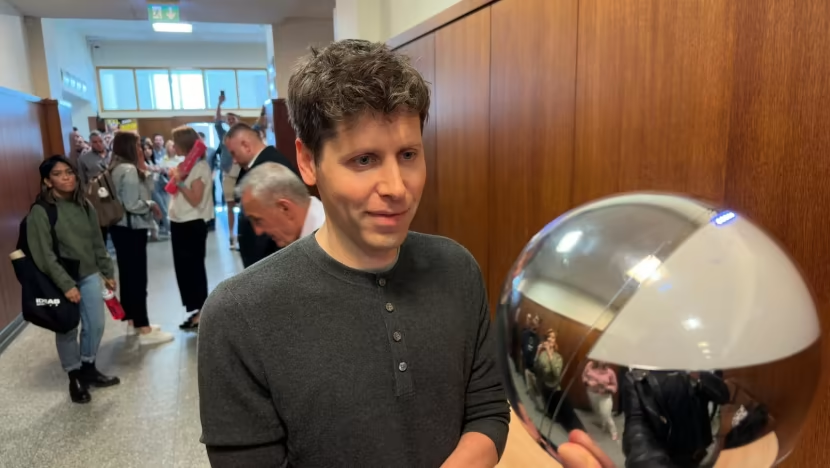Sam Altman's biometric identity verification venture, World, is launching in the UK this week, beginning in London.
The company plans to expand to other major cities including Manchester, Birmingham, Cardiff, Belfast, and Glasgow in the coming months.
The project uses a spherical eye-scanning device, the Orb, to verify that a person is human and not an artificial intelligence system.
Orb Technology Aims to Prevent AI-Based Fraud
The Orb scans a person’s iris and face to generate a unique biometric code. This code confirms the user is a real human.
After registration, users receive some WLD cryptocurrency and can use an anonymous identifier known as World ID.
World ID allows users to log into online platforms without revealing personal information.
It is currently compatible with services such as Minecraft, Reddit, and Discord.
The system is designed to help prevent fraud from tools like deep fakes and other AI-powered impersonation techniques.
Growing Interest from Enterprises and Governments
Adrian Ludwig, Chief Architect at Tools for Humanity, a key contributor to World, said the project is seeing significant demand from enterprises and governments.
“The idea is no longer just something that's theoretical. It's something that's real and affecting them every single day,” Ludwig told CNBC. He added that World is transitioning “from science project to a real network.”
The company recently opened locations in several U.S. cities including Austin, Atlanta, Los Angeles, Nashville, Miami, and San Francisco.
Ludwig stated that World plans to "increase the number of people who can be verified by an order of magnitude over the next few months."
Privacy Design Built Around Local Processing
World says it encrypts all biometric data and deletes the original iris scan after processing.
The identity verification process is handled locally on users’ smartphones, rather than through centralized cloud storage.
The company states this architecture helps maintain privacy even as the network grows.
World currently has 13 million verified users and is preparing to scale
Ludwig said new AI tools are making traditional authentication methods like facial recognition and CAPTCHA easier to bypass.
He noted that World fits into a broader shift toward digital ID systems.
He referenced India’s Aadhaar system as a high-profile example, while also acknowledging its challenges, including security concerns and social inequality.
“We're beginning to see governments now more interested in how can we use this as a mechanism to improve our identity infrastructure,” Ludwig told CNBC.
He confirmed that World has been in active discussions with regulators, including the UK’s Information Commissioner’s Office.
“In general, there's been lots of questions: how do we make sure this works? How do we protect privacy? If we engage with this, does it expose us to risks?” Ludwig said.
“All of those questions we've been able to answer,” he added. “It's been a while since we've had a question asked we didn't have an answer to.”
PHOTO: X/SAM ALTMAN
This article was created with AI assistance.
Read More






 Saturday, 31-01-26
Saturday, 31-01-26







